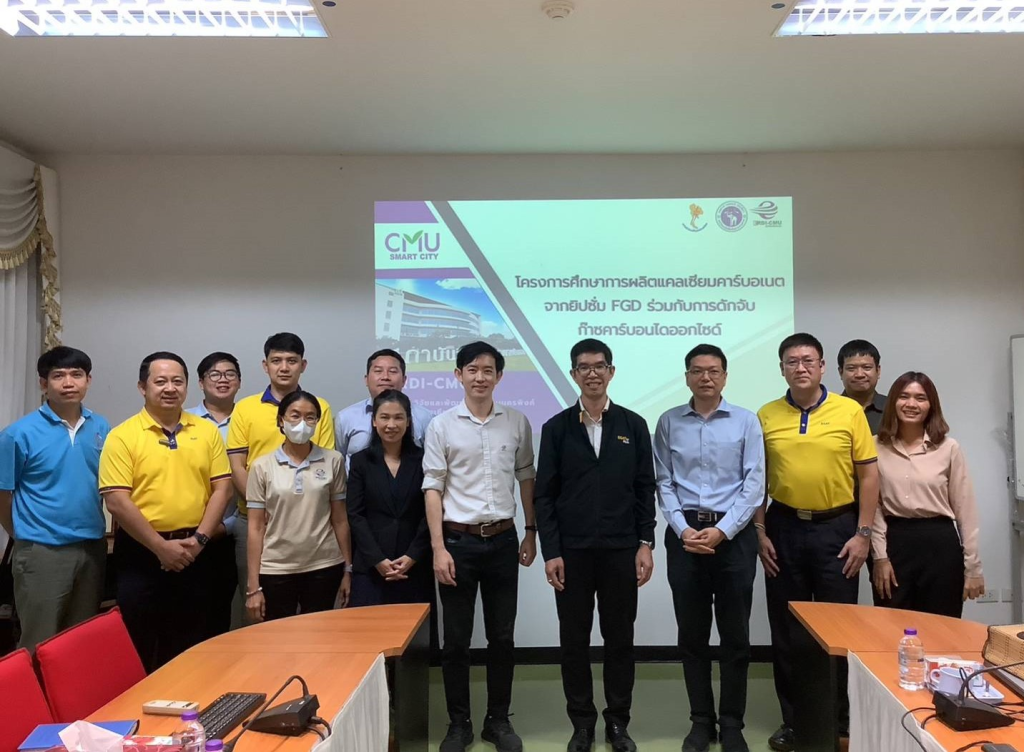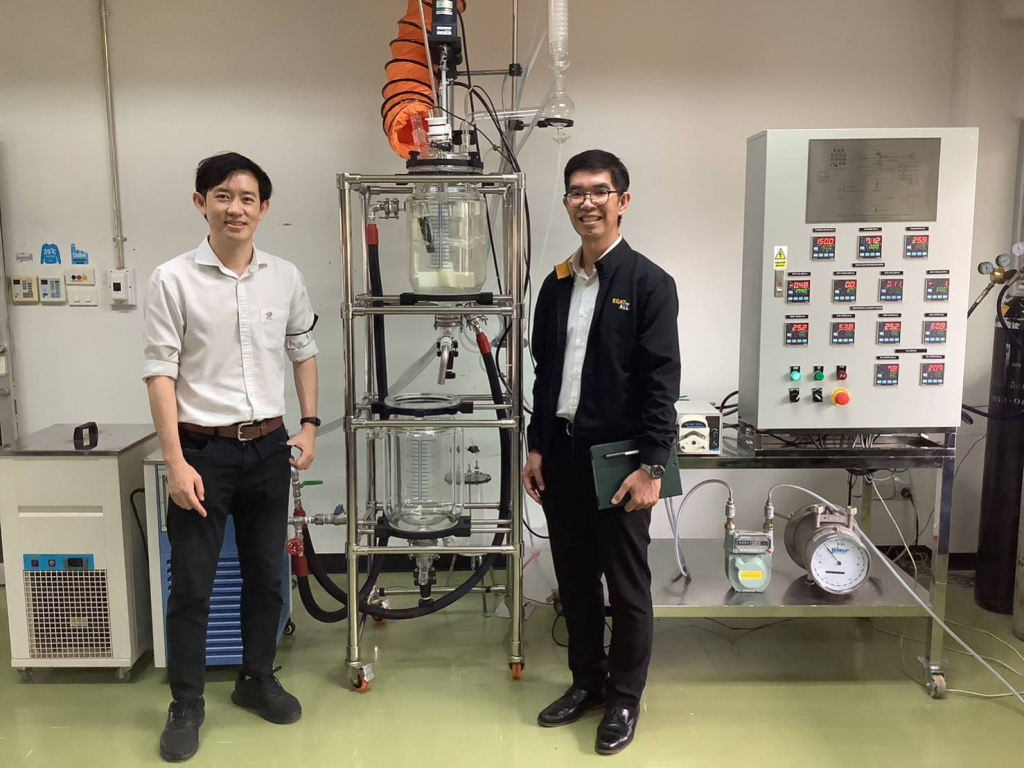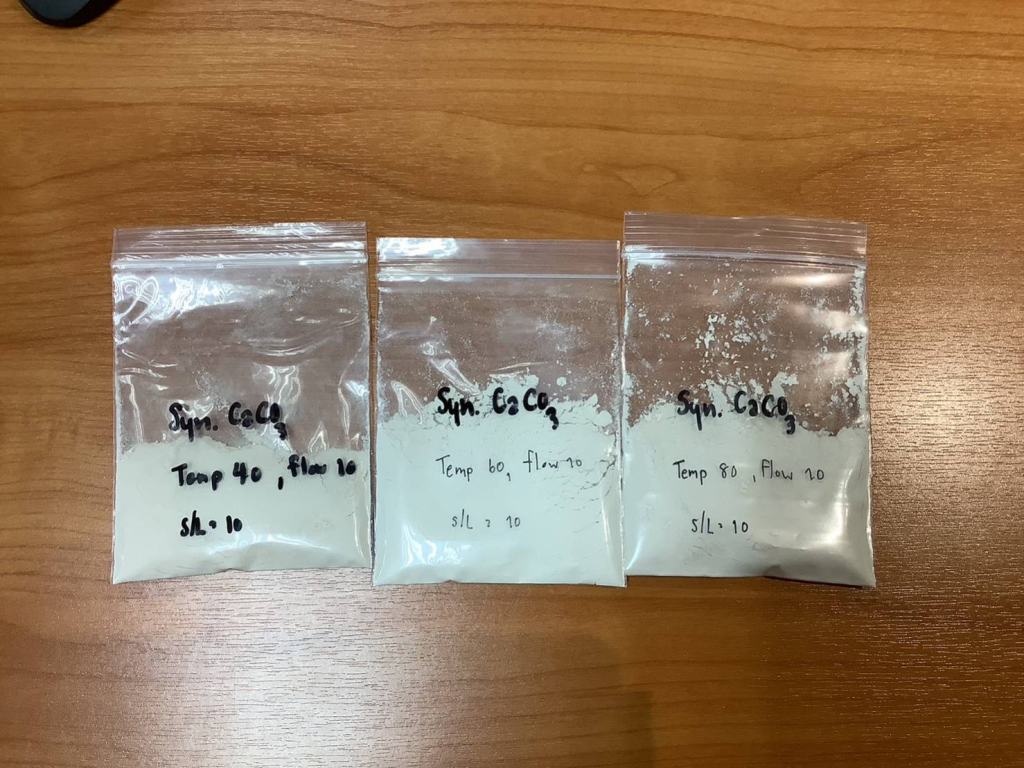RTA visits the Nakhon Ping Energy Research and Development Institute. Support research and development of capture technology Carbon utilization and storage ccus aims to reduce EGAT’s greenhouse gas emissions.
The RTA line supports research funding for the Nakornping Energy Research and Development Institute. Chiang Mai University To study the project to produce calcium carbonate from FGD gypsum combined with carbon dioxide capture. Ready to study CCUS technology and apply it to power plants. Helps reduce greenhouse gas emissions

On March 13, 2023, the Electricity Generating Authority of Thailand (EGAT) executive team, Power Plant and Renewable Energy Development Department (EGAT), led by Mr. Chatchai Mawong, Assistant Governor for Engineering and Construction of Power Plants (EGAT). ) and executives of the Power Plant Engineering Department (AWA) study at the operating room. Nakornping Energy Research and Development Institute Chiang Mai University To study the project to produce calcium carbonate from FGD gypsum combined with carbon dioxide capture. and follow the progress of the project, with EGAT recognizing the importance of capture technology utilization and carbon capture (CCUS – Carbon Capture, Utilization, and Storage), which is a technology that is gaining attention from around the world. It is also one of the technologies that will help achieve the Net Zero Emission goal. Therefore, EGAT supports research and innovation development funding for the Nakornping Energy Research and Development Institute. Chiang Mai University To study the utilization of carbon dioxide gas. It also helps add value to FGD gypsum, which is a by-product of the power plant exhaust treatment process. To become limestone that can be used for more benefits than before. This research is therefore another step for EGAT to begin seriously studying CCUS technology and applying it to EGAT’s power plants in order to reduce greenhouse gas emissions. In line with Thailand’s Carbon Neutrality and Net Zero Emission goals.
Currently, this research project has progressed 30 percent. It is expected that the results will be complete by the end of 2023.
For the power plant and renewable energy development line has supported a project to study the production of calcium carbonate from FGD gypsum together with carbon dioxide gas capture. Because it is a project that is in line with EGAT’s Triple S strategy in terms of Sink Co-creation or increasing the amount of carbon absorption and storage. To reduce the release of greenhouse gases into the atmosphere. It can also create benefits for EGAT commercially. As well as supporting sustainable development (BCG – Bio Circular Green Economy), adding value to the by-product by using FGD gypsum from Mae Moh Power Plant, Lampang Province, which is one of EGAT’s CCUS pilot power plants. Ph.D. has a plan to complete research and development projects by 2023 and will use the information obtained from these research projects to further develop them commercially in the next order. This research therefore contributes to EGAT’s development of knowledge about clean energy. In terms of CCUS technology, which is a technology that will help meet the goal of becoming carbon neutral by 2050 to reduce greenhouse gas emissions. along with sustainable energy security




